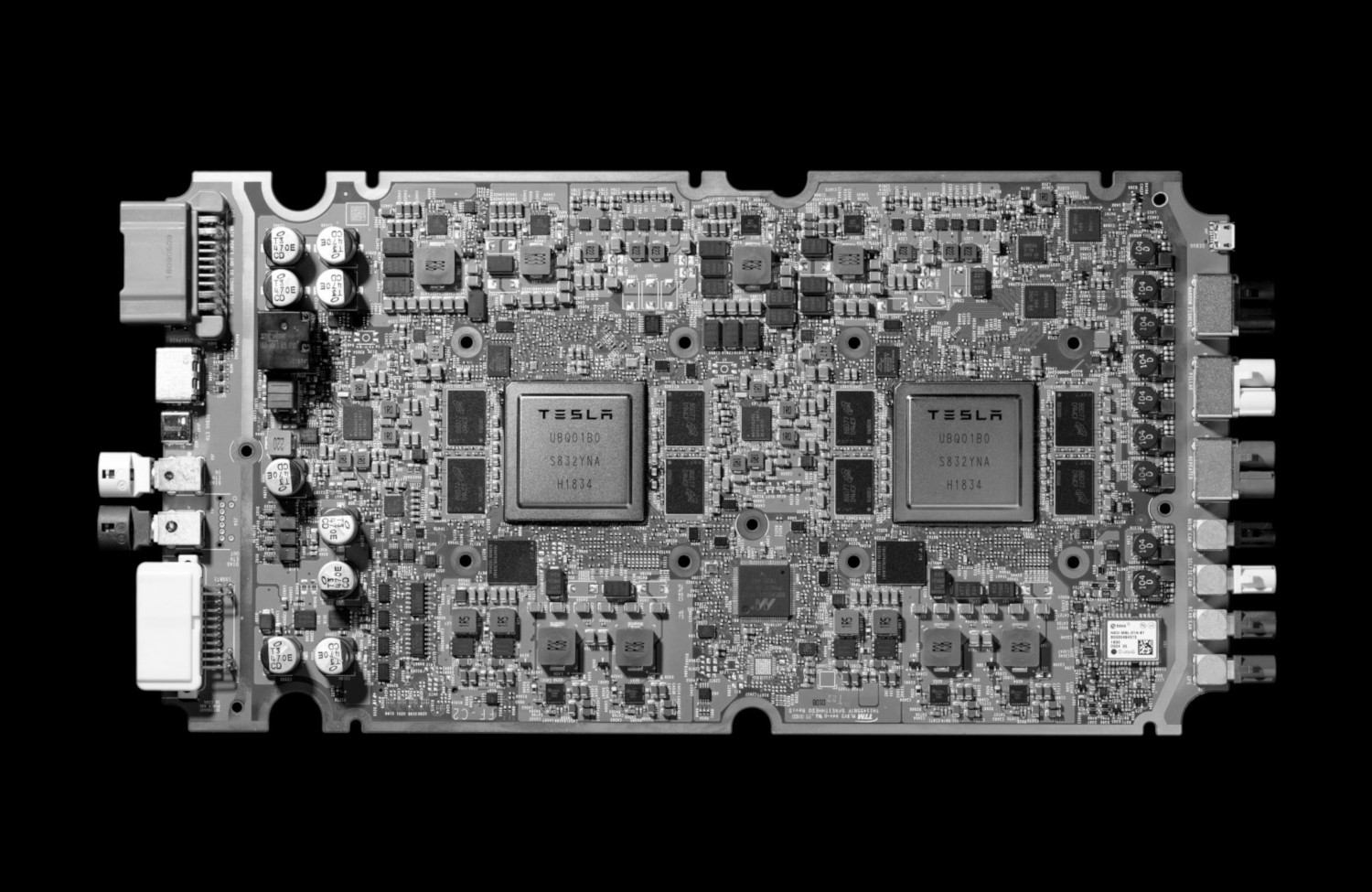Tesla Antagonizes Nvidia With New Self-Driving Tech
Tesla hopped on the "make your own chips" bandwagon on Monday with new Full Self-Driving hardware designed specifically for (you guessed it) its self-driving vehicles. The company previously relied on Nvidia hardware for its self-driving technology, but Tesla CEO Elon Musk said during the reveal that Nvidia's reliance on multiple customers forced it to make a "generalized solution," and Tesla believes its own hardware performs better.
The company said during the presentation that the Full Self-Driving hardware offered 144 TOPS of processing power, and Tesla said in a tweet that it "houses 6 billion transistors and is capable of processing up to 2300 frames per second – a 21x improvement over previous gen hardware." Tesla doesn't appear to have updated its website with details about the Full Self-Driving hardware at the time of writing--the full announcement is on YouTube.
Nvidia didn't like those comparisons. MarketWatch said the graphics company responded with a statement which read in part: "Tesla was inaccurate in comparing its Full Self Driving computer at 144 TOPS of processing with Nvidia Drive Xavier at 21 TOPS. The correct comparison would have been against Nvidia's full self-driving computer, Nvidia Drive AGX Pegasus, which delivers 320 TOPS for AI perception, localization and path planning."
The Nvidia spokesperson also said that Tesla was wrong about Xavier's performance, because "while Xavier delivers 30 TOPS of processing, Tesla erroneously stated that it delivers 21 TOPS." They also noted that a vehicle "with a single Xavier processor is designed for assisted driving AutoPilot features, not full self-driving." We wouldn't be surprised if the company later contended that Tesla also mispronounced its name or something.
Nvidia's concern likely stems from the increasing competition it faces in the self-driving market. While the company is best known for graphics cards that make games look pretty, in recent years, it's focused much of its attention on self-driving technologies and other enterprise sectors. Tesla's decision to make the Full Self-Driving hardware didn't just cost Nvidia one customer; it could also inspire other companies to make their own chips.
Tesla's unfavorable--and potentially inaccurate--comparison to Nvidia's hardware also came just a few weeks after Intel called out the graphics company. Mobileye CEO Amnon Shashua published a surprisingly aggressive blog post on March 25 in which he basically said that Nvidia's Safety Force Field technology, which was announced on March 18, ripped off the Responsibility-Sensitive Safety tech that Mobileye revealed in 2017.
Nvidia is facing competition on all sides. Traditional rivals like Intel are calling out its self-driving efforts, customers like Tesla are making their own hardware, and other companies are looking to solve the same problems as well. And here we are just hoping these companies don't spend so much time trash-talking each other that they accidentally unleash roving packs of self-driving cars that look on our squishy flesh with disgust.
Get Tom's Hardware's best news and in-depth reviews, straight to your inbox.

Nathaniel Mott is a freelance news and features writer for Tom's Hardware US, covering breaking news, security, and the silliest aspects of the tech industry.
